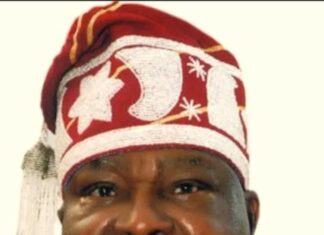We are entering into an important era of the history of English Literature called The Golden Age of Literature, but first we began to examine the lean period of Literature preceding it from last week.
We see how the political or societal situation of an era directly affects its arts and culture causing retardation rather than growth.
Although some very important thing happened also in the 15th century, like the invention of the printing press as we mentioned last week. Also in Italy, Leonardo da Vinci painted what would become a controversial portrait in the 21st century, The Last Supper (created between 1495-1498, commissioned by the Duke of Milan – Ludovico Sforza) which became the setting (remember setting includes object, time and mood) for Dan Brown’s controversial book, The Da Vinci Code.
It should be noted that after the Angles and Saxon’s conquest of England, in 1066, the Norman conquered England. The Anglo-Saxon language lost its status as the official means of communication at courts, parliament and in polite society.
The French dialect of the upper class became Anglo-Norman, and the Anglo-Saxon became Middle English. But despite the preference of the aristocrats for the Anglo-Norman language, the Middle English or Anglo-Saxon continued to develop in literary works.
For example, at the beginning of the 13th century, an English priest named Layamon compiled and recast a poem titled Brut based on 12th century Anglo-Norman epic of the same name, Brut. It is a 16, 096 lines of narration, of Britain’s hisyoty (a historiography) The language of Layamon;s Brut is recognizably Middle English with influence from Anglo-Saxon
Literary works in English language experienced a gradual but steady growth in especially lyrics and romances. It soon regained its prestige and ousted French and Latin in parliament and courts of law.
English literature continued to grow with such works like Pearl Poet’s Pearl, Patience, Cleanness, Sir Gawain and the Green Knight, Plowman; Gower’s Confessio Amantis, and of course the works of Chaucer, the most highly regarded English poet of the Middle Ages. Chaucer was in fact regarded by his contemporaries as the successor of such great minds as Vigil and Dante.
Chaucer’s successors did not enjoy the high reputation of their predecessor, although Lydgate and and Skelton are widely studied.
However, the 15th century saw the remarkable entrance of some Scottish writers. The rise of Scottish poetry began to develop with the writing of the King’s Quair by James 1 of Scotland. The major poets of the Scottish group are: Robert Henryson, William Dunbar and Gavin Douglas.
Remarkable in the works of Henryson and Douglas is the introduction of what is known as savage satire which the cognoscenti observed to owe something to the Gaelic bards. In addition, Douglas’ version of Vigil’s Aeneid is one of the early monuments of the Renaissance Literary Humanism in English.
We will move into the Renaissance period proper but not before we see some stanzas of the poems of John Skelton or Shelton (1460-1529). Skelton was born in Norfolk in 1460 and died June 21, 1529 at Westminster, London.
Educated in both Universities of Cambridge and Oxford, Skelton is known as a Tudor poet and satirist. His subjects are both political and religious. Skelton usually signed his works as regius orator and poet laureate, so he is known as the king’s poet. And that is, Henry VIII. He was said to be appointed the tutor of the young Henry before he became king, by his royal father Henry VII.
Skelton later quit that job to become rector at Diss. Norfolk. His poetic style is short rhyming lines based on the natural speech rhythms which have been given the name Skeltonics. His poem, The Bowge of Court (is too tedious to read for our time) an epic poem in which he highlights the intrigues, the vices and indiscretions he witnessed during his time at court, although he never judged the whole, but he pointed accusing fingers at parts he found rotten.
Here are excerpts from some of his poems:
To Mistress Isabell Pennell
By Saint Mary, my lady,
Your mammy and your dady
Brought forth a goodly baby!
My maiden Isabell,
Reflaring rosabell,
The flagrant camamell,
The ruddy rosary,
The sovereign rosemary,
The pretty strawberry,
The columbine, the nepte,
The jeloffer well set,
The proper violet;
Ennewèd your colour
Is like the daisy flower
After the April shower;
Star of the morrow gray,
That blossom on the spray,
The freshest flower of May:
Maidenly demure,
Of womanhood the lure;
Wherefore, I make you sure,
It were an heavenly health,
It were and endless wealth,
A life for God himself,
To hear this nightingale
Among the birdes smale
Warbling in the vale,
Dug, dug, jug, jug,
Good year and good luck,
With chuck, chuck, chuck, chuck!
GO, pytyous Hart
GO, pytyous hart, rasyd with dedly wo,
Persyd with payn, bleding with wondes smart,
Bewayle thy fortune, with vaynys wan and blo.
O Fortune vnfrendly, Fortune vnkynde thow art,
To be so cruell and so ouerthwart,
To suffer me so carefull to endure,
That wher I loue best I dare not dyscure !
One there is, and euer one shalbe,
For whose sake my hart is sore dyseasyd ;
For whose loue, welcom dysease to me !
I am content so all partys be pleasyd :
Yet, and God wold, I wold my payne were easyd !
But Fortune enforsyth me so carefully to endure,
That where I loue best I dare not dyscure.
By John Skelton
The auncient acquaintance, madam
The auncient acquaintance, madam, between vs twayn,
The famylyaryte, the formal dalyaunce,
Causyth me that I can not myself refrayne
But that I must wryte for my plesaunt pastaunce:
Remembryng your passying goodly countenaunce,
Your goodly port, your bewteous visage,
Ye may be countyd comfort of all corage.
Of all your feturs fauorable to make tru discripcion,
I am insuffycyent to make such enterpryse;
For thus dare I say, without [con]tradiccyon,
That dame Menolope was neuer half so wyse:
Yet so it is that a rumer begynneth for to ryse,
How in good horsmen ye set your hole delyght,
And haue forgoten your old trew louyng knyght.
Wyth bound and rebound, bounsyngly take vp
Hys jentyll curtoyl, and set nowght by small naggys!
Spur vp at the hynder gyrth, with Gup, morell, gup!
With, Jayst ye, jenet of Spayne, for your tayll waggys!
Ye cast all your corage vppon such courtly haggys.
Haue in sergeaunt ferrour, myne horse behynd is bare;
He rydeth well the horse, but he rydeth better the mare.
Ware, ware, the mare wynsyth wyth her wanton hele!
She kykyth with her kalkyns and keylyth with a clench;
She goyth wyde behynde, and hewyth neuer a dele:
Ware gallyng in the widders, ware of that wrenche!
It is perlous for a horseman to dyg in the trenche.
Thus greuyth your husband, that ryght jentyll knyght,
And so with youre seruantys he fersly doth fyght.
So fersly he fytyth, his mynde is so fell,
That he dryuyth them doune with dyntes on ther day wach;
He bresyth theyr braynpannys and makyth them to swell,
Theyre browys all to-brokyn, such clappys they cach;
Whose jalawsy malycyous makyth them to lepe the hach;
By theyr conusaunce knowing how they serue a wily py:
Ask all your neybours whether that I ly.
It can be no counsell that is cryed at the cros:
For youre jentyll husband sorowfull am I;
How be it, he is not furst hath had a los:
Aduertysyng you, madame, to warke more secretly,
Let not all the world make an owtcry;
Play fayre play, madame, and loke ye play clene,
Or ells with gret shame your game wylbe sene.
Qd Skelton, laureat.












